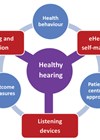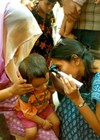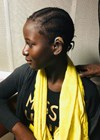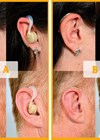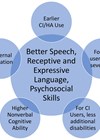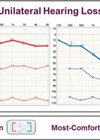Audiology features
The future of audiology rehabilitation? Smartphone apps to collect real-world experiences and support clinical decision-making
Ecological momentary assessment (EMA) is gaining momentum in the world of connected hearing healthcare and real-world assessment. Barbra Timmer explains how EMA will play a key role in transforming the information that clinicians use in decision-making and measuring outcomes. Did...
Leadership reflections
For the past year, Lisa Vaughan Christensen has been the President of the American Academy of Audiology. In this article, she shares the journey that led her to this position and offers some brilliant advice to anyone interested in leadership....
Audiology research: opportunities, career progression and leadership
A career in research can, at first glance, seem far removed from the clinical world of audiology but is that really the case? In this article Melanie Ferguson explains the role of translational research in bridging this gap, as well...
To make a difference
Education and training have a key part to play in the development of leaders of the future; Dorte Hammershøi discusses the educational approaches taken in Denmark and the pros and cons of the methods used. Dorte also explains the BEAR...
Building partnerships for person-centred care
The Ida Institute are a renowned organisation that develops tools, materials and resources to help hearing care professionals integrate person-centred care into clinical practice. Lise Lotte Bundesen has been at the helm of this organisation since its inception; in this...
In conversation with Shelly Chadha 2019
Shelly Chadha works at the World Health Organisation as the Medical Officer for ear and hearing care. Here, Alex Griffiths-Brown interviews her to find out more about her career, challenges she’s faced and her ambitions for the future. Shelly Chadha....
Sound Seekers: audiology in the developing world
Kavita Prasad, the current CEO of Soundseekers, is an inspirational woman in a leadership role within the audiology world. Here, she gives us an overview of the scope of the charity and the ways in which they improve the lives...
Direct-to-consumer hearing devices: a need to combine cosmetic appeal with device capabilities
How safe and desirable are direct-to-consumer amplification devices? A team has put a range of devices through their paces and compared them to a standard NHS hearing device. Why do most individuals who would benefit from hearing aids not try...
Hearing aids 2019: today’s technology
High-end or basic hearing aids: does the technology level make a difference? Catherine Palmer shares the current evidence base and suggests where hearing healthcare professionals can make the most impact. The most common complaint from individuals with mild-to-moderately severe hearing...
Hearing aid microphone considerations for binaural hearing: When to select natural or aggressive directional microphone technology?
Should I use omni-directional or fixed directionality? Does it make a difference if I’m fitting a unilateral hearing loss? Mark Laureyns discusses the current evidence on directional microphones and provides practical advice on the systems and when to employ them....
Hearing care systems in Europe – can we do more?
52 million Europeans experience hearing loss but many don’t find their way to professional hearing care. Lidia Best looks at strategies to improve the uptake of amplification at a national level [1]. With rising numbers of people experiencing hearing loss,...
Misophonia – a psychological disorder?
Historically, there has been disagreement regarding misophonia classification, with questions surrounding whether it is a psychological or physiological disorder. Dr Jennifer Jo Brout discusses misophonia classification, research, and guidelines for the role of the psychologist. Photo courtesy of Pexels. What...




